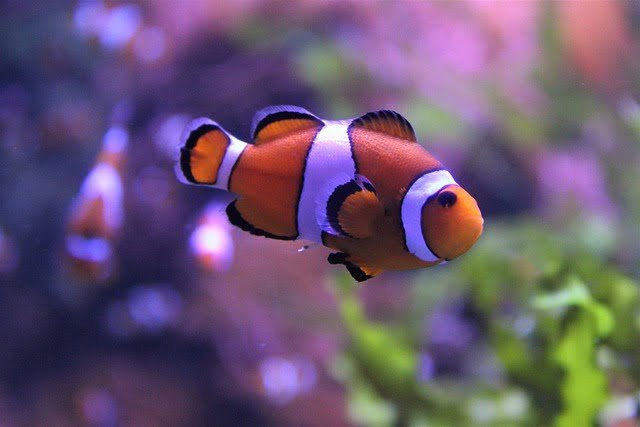Setting up an aquarium can be an exciting and rewarding experience. However, before diving into this aquatic hobby, it’s crucial to consider several factors to ensure a successful and sustainable aquarium setup. This article will discuss six critical things you should consider before buying an aquarium. By addressing these essential aspects, you can create a thriving aquatic environment that provides a healthy habitat for your aquatic pets and enhances the aesthetic appeal of your space.

Tank Size and Space Requirements
The size of your aquarium plays a vital role in the overall well-being of your aquatic pets. Consider the space available in your home or office and choose a tank size that suits your needs and the fish you intend to keep. Larger tanks generally offer better stability and provide more swimming space for the fish. Additionally, larger volumes of water are more forgiving of water parameter fluctuations, making it easier to maintain a healthy environment. The reputable aquatic product providers behind AquariumStoreDepot.com suggest that you research the specific space requirements of the fish species you plan to keep and ensure the tank can accommodate their needs. Remember to account for the additional space needed for filtration systems, heaters, and other equipment.
Tank Placement and Environmental Factors
The location of your aquarium is crucial for its long-term success. Choose a stable and level surface that can support the tank’s weight when filled with water. Avoid placing the tank near direct sunlight, as it can lead to temperature fluctuations and encourage excessive algae growth. Ensure the location is away from drafts, air conditioning vents, or heaters, as these can also impact the water temperature. Consider the proximity to electrical outlets for easy access to power your equipment. Adequate space for maintenance activities, such as water changes and equipment adjustments, is also essential. You can create a stable and conducive environment for your aquarium by selecting an appropriate location.
Filtration System and Water Quality
A reliable filtration system is essential for maintaining good water quality in your aquarium. It helps to remove debris, toxins, and harmful substances while promoting the growth of beneficial bacteria. Research and choose a filtration system that matches your tank’s size and your fish’s needs. Different types of filters are available, including mechanical, chemical, and biological filtration. Consider the specific requirements of your fish species and the type of filtration they need. Monitoring and testing water parameters, such as temperature, pH, ammonia, nitrite, and nitrate levels, are also crucial to ensure a healthy environment. Invest in a reliable water testing kit to help maintain optimal water quality and make necessary adjustments.
Fish Compatibility and Tankmates
Before selecting fish for your aquarium, it’s essential to consider their compatibility and the potential for aggression or conflict. Research the specific needs and behaviors of the fish species you are interested in keeping. Some fish may require specific water conditions, while others may be territorial or aggressive towards certain species. Ensure that the fish you choose are compatible regarding water temperature, pH levels, and dietary requirements. Consider the fish’s size and growth potential to ensure they have enough space to swim and thrive. Avoid overcrowding the tank, leading to stress, disease, and poor water quality. Consult with experienced aquarists or seek advice from knowledgeable professionals to ensure your fish selection is appropriate and compatible.
Maintenance and Time Commitment
Maintaining an aquarium requires regular care and attention. Consider the time commitment to cleaning, feeding, and monitoring the aquarium’s health. Routine maintenance tasks include:
- Water changes.
- Cleaning the tank.
- Checking and adjusting water parameters.
- Ensuring the proper functioning of equipment.
Plan your schedule accordingly and make sure you can dedicate enough time to these tasks. Neglecting regular maintenance can lead to water quality issues, stressed fish, and potential health problems. If you have a busy lifestyle or anticipate limited time for aquarium upkeep, you may want to consider low-maintenance setups or seek assistance from professional aquarium services.
Budget and Cost Considerations
Creating and maintaining an aquarium involves certain expenses. Before buying an aquarium, consider your budget and the ongoing costs of this hobby. Factor in the initial purchase of the tank, filtration system, lighting, heating, and other equipment. Additionally, consider the cost of decorations, gravel or substrate, fish food, water conditioners, and regular testing supplies. Some fish species may have specific dietary requirements or need specialized equipment, which can add to the expenses. It’s also important to consider potential costs for fish healthcare, such as medications and treatments for diseases or infections. By carefully planning your budget and understanding the associated costs, you can ensure you have the financial resources to create and sustain a healthy aquarium environment.

Before owning an aquarium, it’s crucial to consider several essential factors. These include tank size and space requirements, tank placement, filtration systems, water quality, fish compatibility, tankmates, maintenance and time commitment, and budget considerations. By carefully evaluating these aspects, you can create a thriving and enjoyable aquatic habitat for your fish. Remember, a well-thought-out aquarium setup will contribute to your aquatic pets’ overall success and longevity, bringing beauty and serenity to your space.
